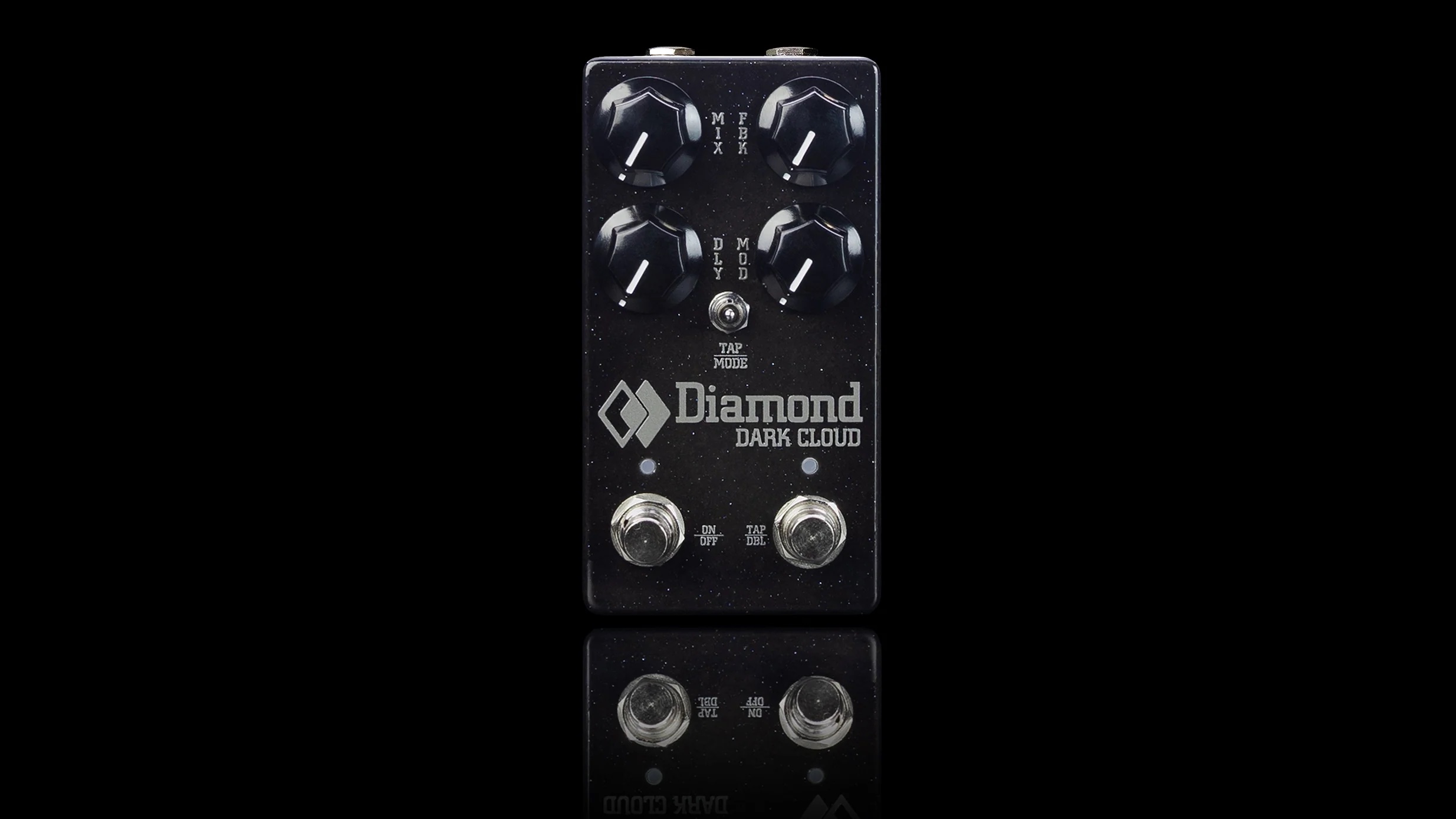“Redefines delay effects to create a pedal like no other”: The Dark Cloud is the final pedal Diamond designed before the revered effects firm closed down – now it’s finally seeing the light of day
The innovative delay is a ‘greatest hits’ of Diamond designs, with a unique reverse mode that’s “like echoes bounding through a stormy canyon”

All the latest guitar news, interviews, lessons, reviews, deals and more, direct to your inbox!
You are now subscribed
Your newsletter sign-up was successful
In 2022, revered Canadian boutique firm Diamond was working on what would turn out to be its final original pedal design: an innovative new delay that would sadly never see the light of day after the company was forced to shut its doors in 2022. Now under the ownership of fellow Canadian co SolidGoldFX, the Dark Cloud is finally here.
The long-gestated delay pedal is built around Diamond’s Digital Bucket Brigade Delay, which delivers a new twist on the beloved analog delay chip, offering three delay modes with BBD analog warmth and precise digital control.
The company is heralding the Dark Cloud as something of a ‘greatest hits’ of its existing designs. So, the Tape mode is based on its Counter Point’s saturated warbles, while the Harmonic Delay comes from the Quantum Leap, offering delayed octave or 5th-above pitch-shifted sounds.
Reverse, however, is a new setting, teaming your typical backwards delay with lo-fi filtering. The twist is that the analog feedback path alternates between the reverse and regular forward delays, “like echoes bounding through a stormy canyon”, apparently.
Controls are simple, with knobs for Mix, Delay, Feedback and Modulation, plus an onboard tap-tempo footswitch, with the tap subdivision (quarter note, eighth note and dotted eighth) dialed in via a Tap/Mode switch.
That extra footswitch can also access a Doubler feature for instant or momentary doubling of the delay tempo, while you get soft-touch relay switching from the main bypass footswitch, as well as selectable Trails or Kill modes when turning the pedal off.
As Diamond puts it, “Dark Cloud unlocks a new frontier in delay technology unobtainable by standard BBD circuits”.
All the latest guitar news, interviews, lessons, reviews, deals and more, direct to your inbox!
And despite the digital tech onboard, the Dark Cloud stays true to its analog delay roots, drawing just 45mA at 9V, making for easy integration with any pedalboard power supply.
It’s heartening to see Diamond return to making boundary-pushing new designs, after reissuing many of its classic effects – including its unmistakable Vibrato – over the past couple of years.
In a market saturated with delay pedals, the Dark Cloud sounds like it has enough in the way of original sounds to make a mark – and the simple control set will be attractive to anyone seeking not-of-this-Earth sounds without menu-diving.
The Dark Cloud is available now for $249. For more info, head to Diamond Pedals.

Mike has been Editor-in-Chief of GuitarWorld.com since 2019, and an offset fiend and recovering pedal addict for far longer. He has a master's degree in journalism from Cardiff University, and 15 years' experience writing and editing for guitar publications including MusicRadar, Total Guitar and Guitarist, as well as 20 years of recording and live experience in original and function bands. During his career, he has interviewed the likes of John Frusciante, Chris Cornell, Tom Morello, Matt Bellamy, Kirk Hammett, Jerry Cantrell, Joe Satriani, Tom DeLonge, Radiohead's Ed O'Brien, Polyphia, Tosin Abasi, Yvette Young and many more. His writing also appears in the The Cambridge Companion to the Electric Guitar. In his free time, you'll find him making progressive instrumental rock as Maebe.

